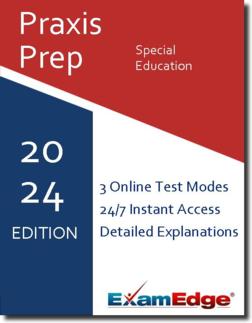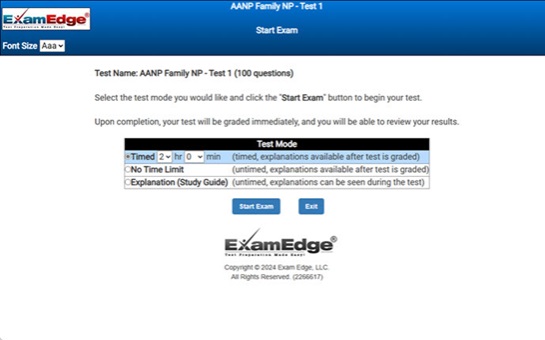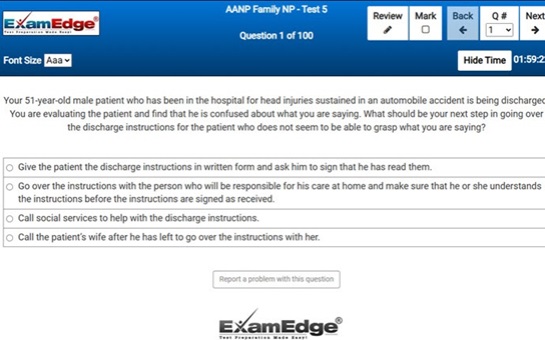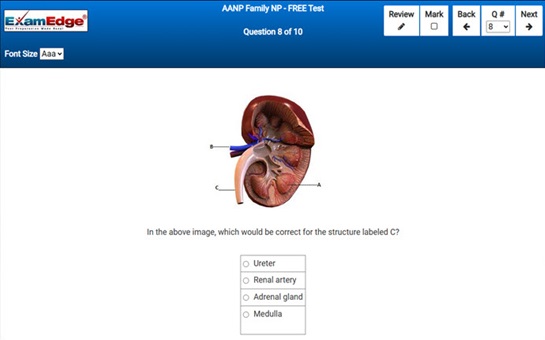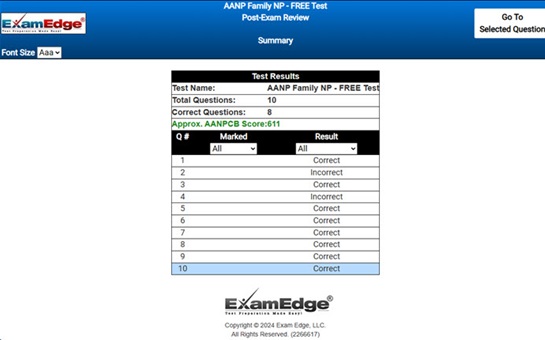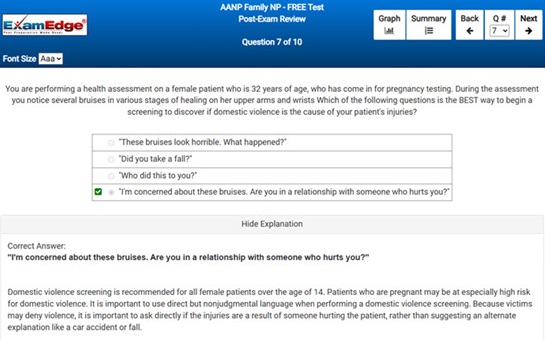Praxis Special Education (0351) Practice Tests & Test Prep by Exam Edge - Why Exam Edge
Get Instant Online Access Now!
** Sample images, content may not apply to your exam **
Getting ready for the Praxis Special Education: Knowledge-Based Core Principles test? Boost your exam prep with Exam Edge!
Exam Edge has been an industry leader in online test preparation for nearly two decades. Our practice tests are carefully designed for the most effective exam prep. Read on to learn more about the features that set our practice tests apart.
Select Your Test Bundle
Excellent
Praxis Special Education (0351) Shortcuts
General Exam Info
Exam Topics
Features
Study Plan Tips
Test Reviews
Why Exam Edge?
FAQ
Related Blogs
Take a FREE Test
Why Choose Exam Edge for your Praxis Special Education (0351) Exam prep?
Benefits of Exam Edge Praxis Special Education: Knowledge-Based Core Principles Practice Tests & Test Prep
Exams like the Praxis Special Education: Knowledge-Based Core Principles exam do not just measure what you know -- they also test how well you perform under pressure. The right type of test preparation helps you familiarize yourself with both the material you are being tested on and the format of the test itself. Our practice tests, exam flashcards, and other test prep resources are carefully crafted to replicate the experience of taking the Praxis Special Education exam to make you maximally prepared for the demands of test day.
Looking to level up your test prep routine? Here are five reasons you should incorporate practice tests from Exam Edge into your Praxis Special Education: Knowledge-Based Core Principles test prep strategy:
- In-depth explanations for every practice test question and answer: Once you complete a practice exam, we give you detailed explanations of each correct and incorrect practice exam question answer. We also provide a summary of the number of practice test questions you answered correctly, and an estimate of your score as you would receive on the real exam. Use this combination of quantitative and qualitative insights to get a comprehensive picture of your readiness for the Praxis Special Education exam!
- Realistic Praxis Special Education: Knowledge-Based Core Principles practice test questions: Our practice tests are designed to have a similar feel to the real test. From the type and number of questions to the default time limit for each practice exam, our Praxis SPED questions mimic those that are found on the real exam. This way, when you take the actual test, you will already be familiar with the test's navigation, structure, and flow. The psychological benefits of this kind of practice are significant. Once you eliminate the stress and distraction of unfamiliar test software or formatting, your brain is freed up to focus on each question.
- Easy-to-access resources for your on-the-go lifestyle: Our practice tests are web-based, so there is no software to install and no files to download. Just log in to ExamEdge.com for access to your Praxis Special Education practice tests on any smartphone, tablet, or computer with an internet connection. Chip away at your exam prep from home, work, campus, your favorite coffee shop, or wherever life takes you.
- Flexible timed and untimed Praxis Special Education: Knowledge-Based Core Principles practice tests:Use our 3 different test-taking modes for different kinds of test preparation. You can pause a practice test and continue right where you left off with the same amount of time you had remaining. You can learn more about these unique functions in our Praxis Special Education practice test features.
- A brand you can trust: As an "A+" rated, fully accredited member of the Better Business Bureau, Exam Edge upholds the highest level of business standards, and our proof of success is with our customers. We have heard from countless test-takers who told us they failed their certification exams until they found us and added our practice tests to their exam preparation plans. We are driven by a genuine passion for helping test-takers succeed, and we cannot wait to help you start or continue your journey to passing the Praxis Special Education: Knowledge-Based Core Principles }!
Learn more about Exam Edge, and what makes us right for you on your test prep journey!
All in all, the most effective study plan involves regular practice-testing to exercise your recall skills, practicing your time management, and increasing your focus and test-taking stamina. Invest your study time in our Praxis Special Education: Knowledge-Based Core Principles practice exams and walk into test day confident, and ready to demonstrate your skills.
Need more convincing? Take your first practice test on us and see firsthand how practice tests can transform your Praxis SPED test prep. Learn how to get a free Praxis Special Education: Knowledge-Based Core Principles practice test, and start test-prep today!
How to Use the Praxis Special Education Practice Test
Our practice tests offer the ultimate flexibility to study whenever, wherever, and however you choose. We offer three modes to engage with your Praxis Special Education: Knowledge-Based Core Principles practice exam:
- Timed Mode: Take a practice test in the timed mode to mimic the experience you will have on test day.
- Untimed Mode: Our untimed practice tests. Use this function to evaluate your knowledge without the added pressure of a ticking timer.
- Study Guide Mode: Our unique study guide function shows the in-depth explanations for each practice exam question as you work through the test. Use this version to work through the questions at your own pace and take detailed notes on the answers.
Once you have completed a practice exam, you will have permanent access to that exam's review page which includes a detailed explanation for each practice test question. Are you confused by a particular question on the practice test you just completed? Simply come back to it after you have completed it and get a detailed explanation of what the correct answer is and why.
Unlike other study tools, practice exams offer the unique benefit of helping you chart your progress and improvement. Start your Praxis Special Education: Knowledge-Based Core Principles exam preparation by taking a practice test to assess your baseline expertise and existing test-taking skills. Then, use your results to identify which topics and skills need the most improvement, and create a study plan that targets those areas. As you study from books, notes, exam flashcards, or other methods, take additional practice tests at regular intervals to evaluate how you retain the information.
Praxis Special Education: Knowledge-Based Core Principles - Why Exam Edge Sample Questions
|
|
|
|

